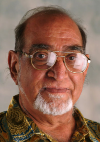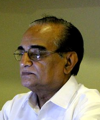
Les neuf puissances nucléaires
En 2015, l’arsenal nucléaire mondial est d’environ 16 300 armes nucléaires, que se répartissent neuf puissances nucléaires : États-Unis, Russie, France, Chine, Royaume-Uni, Israël, Inde, Pakistan, Corée du Nord.
Jean-Marie COLLIN, Michel DRAIN, Bernard NORLAIN, Paul QUILES, France, juillet 2015

Les risques du nucléaire militaire
Les bombardements d’Hiroshima et de Nagasaki sont loin. Nous pourrions croire que les conséquences de ces deux journées n’existent plus. Bien au contraire.
Jean-Marie COLLIN, Michel DRAIN, Bernard NORLAIN, Paul QUILES, France, juin 2015

Le Pakistan face au droit des peuples à disposer d’eux-mêmes : le cas du Baloutchistan
Cette analyse est basée sur deux entretiens menés avec des demandeurs d’asile de la région du Baloutchistan, province du Pakistan. Elle est complétée par des informations provenant de sources institutionnelles, d’instituts de recherches, d’articles de presse et de reportages.
Maxime ARQUILLIERE, Daniel RICHARD, Capucine PEIGNIER, Grenoble, janvier 2015
-
Pak Institute for Peace Studies (PIPS)
Travaux de recherche et d’analyse autour des conflits politiques, sociaux et religieux qui ont un impact direct sur la sécurité nationale et internationale.
François Mabille, Paris, juin 2011
-
Interview with Asghar Ali Engineer
Words collected by Henri Bauer and Sixtine Jauréguiberry (Irenees).
Ashgar Ali Engineer, Nepal, mai 2009

Entretien avec Asghar Ali Engineer
Entretien réalisé, en anglais, par Henri Bauer et Sixtine Jauréguiberry (Irenees).
Ashgar Ali Engineer, Népal, mai 2009
-
Interview with Asghar Ali Engineer
Words collected by Sixtine Jauréguiberry, Dhulikel (Nepal) on the 13th May 2009.
Ashgar Ali Engineer, Nepal, mai 2009
-
Roots of the Islamic fundamentalism with Pakistan as example.
Fahmida Riaz, Karachi, mai 2009
-
Women and Development Association - Wada
An NGO that works to emphasize the intellectual capabilities and contribution of women in the development of society and civilization.
Sixtine Jaureguiberry, Karachi, mai 2009
-
Religion and Politics: Integration, Separation and Conflict
Relations to power of religion and Politics.
Ali Mubarak, Lahore, 2009
-
Consciousness of Muslim Identity in South Asia Before 1947
Historical aspects of creation of a muslim identity.
Ali Mubarak, Lahore, 2009
-
Interview with Syed Sikander MEHDI
Words collected by Henri Bauer and Nathalie Delcamp (Irenees).
Syed Sikander Mehdi, Japan, juillet 2008

Entretien avec Syed Sikander MEHDI
Propos recueillis, par Henri Bauer et Nathalie Delcamp (Irenees).
Syed Sikander Mehdi, Japon, juillet 2008
-
Faire face à la rareté de l’eau : défi du XXème siècle
Le dernier rapport de la FAO (Organisation mondiale pour l’agriculture et l’alimentation) – publié le 20 mars 2007, à l’occasion de la Journée Mondiale de l’eau - avertit que le monde manque de plus en plus d’eau et que les Etats doivent mettre l’accent sur les importantes questions liées à l’eau si ils veulent faire l’économie d’une crise majeure.
Larbi Bouguerra, Paris, mars 2007
-
Pakistan : le jugement concernant le Balighar ne règle pas tous les détails
Le contentieux entre l’Inde et le Pakistan concernant le barrage de Balighar n’est pas encore définitivement réglé.
Larbi Bouguerra, Paris, mars 2007
-
Le Nouveau rapport de la CIA: Comment sera le monde en 2025? présenté par Alexandre Adler
Le nouveau rapport de la CIA propose-t-il un nouveau paradigme pour penser la paix à l’aube du XXIème siècle? « De grands combats sont encore nécessaires. Mais la perspective de modifier la dégradation climatique, de tordre le cou à la misère du Tiers-Monde et de consolider enfin la grande poussée démocratique de 1989 semble enfin à notre portée. » A. Adler
Charlotte Bourrat, Paris, mars 2006
-
Resolutions 2005 taken by the Pakistan India Forum for Peace and Democracy
7th Joint Convention, Delhi, from 25-28 December 2005 Joint Position Paper on Jammu and Kashmir.
Delhi, décembre 2005
-
Un travail de mémoire s’impose entre l’Inde et le Pakistan pour que les souffrances s’expriment mais aussi les espoirs de réconciliation.
Xavier Guigue, Bruxelles, janvier 2005
-
Resolutions 2003 taken by Trade Union from Pakistan and India
6th Joint Convention, Karachi, Pakistan from 12-14 December 2003.
Karachi, décembre 2003
-
Karachi declaration 2003. Changes to be done in India and Pakistan in today’s world
By the 6th joint Convention of the Pakistan India People’s Forum for Peace and Democracy.
Karachi, 2003
-
Bangalore Declaration 2000. Resolution of the Indo-Pakistan conflict
Declaration adopted on April 8, 2000 by the Fifth Joint Convention of The Pak-India Peoples’ Forum for Peace and Democracy.
Bangalore, avril 2000
-
Political Approach of the Indo-Pakistan Conflict
The evolution of the Pakistani Constitution after the Partition.
Syed Jaffar Ahmed, Karachi, Pakistan, May, 2009
-
Paix et religion en Asie du Sud-Est
Une rencontre internationale, organisée par le Pôle Asie du Sud d’Irenees 11-13 Mai 2009 à Katmandou.
Siddhartha, Ashgar Ali Engineer, Kathmandou, Mai 2009
-
Report Katmandou Meeting: Religion and Peace in South Asia
An international consultation , organized by Irenees South Asia, 11-13 may 2009, Kathmandu.
Siddhartha, Ashgar Ali Engineer, Bangalore, June 2009
-
Pakistan Study Centre, University of Karachi
The Pakistan Study Center is part of the University of Karachi and has for goal to create a national cohesion through the studies of languages, litterature and social structure of the people of various regions of Pakistan and by publishing research on the same topics.